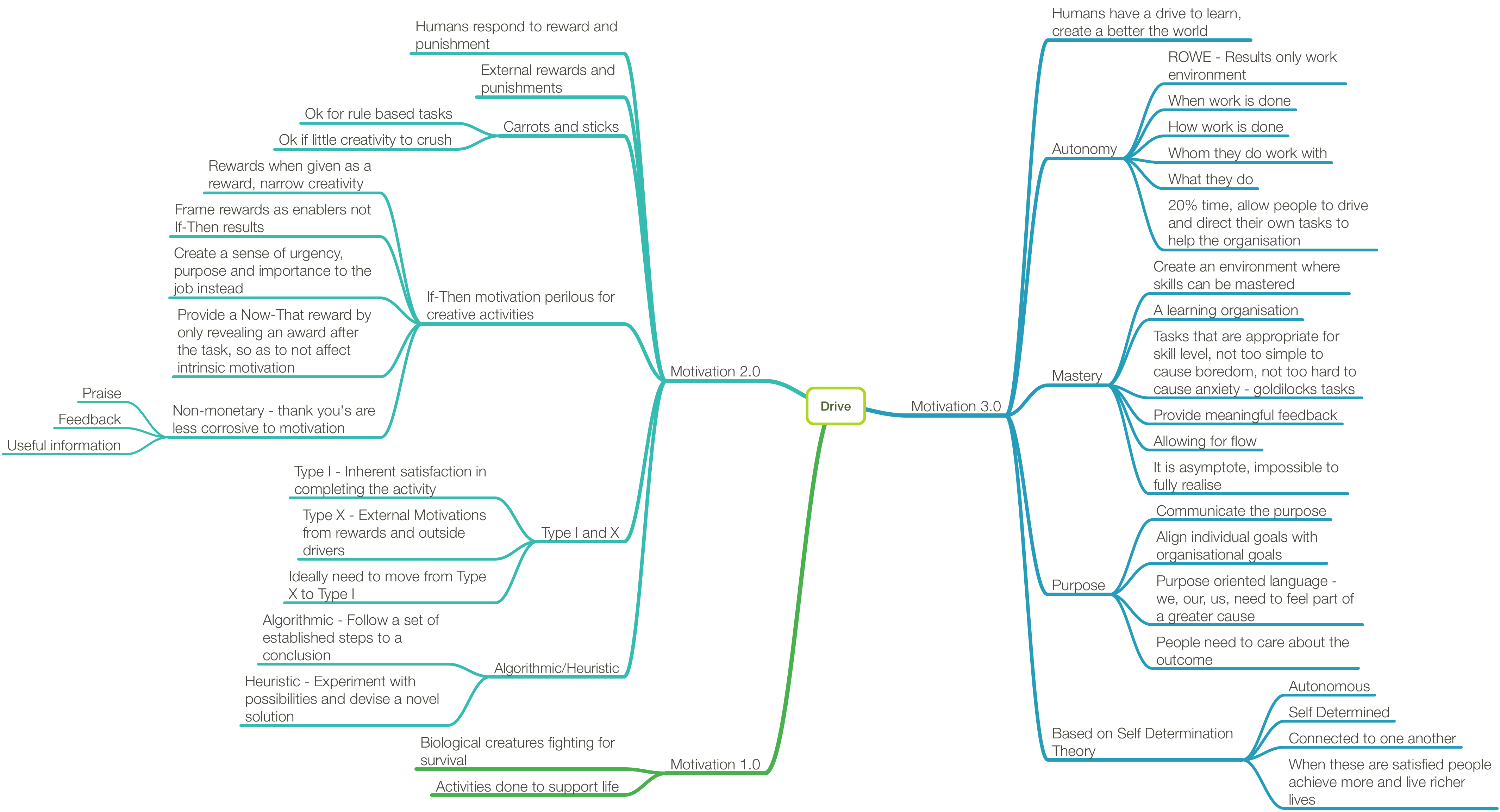Dan Pink's book on what motivates us, Drive, has been an insightful read. Having seen the RSA Animate video on what motivates us and his TED talk I already had a small taste of what to expect. The book solidified a lot his thoughts and research on the topic and I found it quite informative.
His passion and interest in the topic comes out in the book and it has left me with a good vocabulary on the topic with clear ideas on what to apply in the future.
The book begins by going over the different forms of motivation that we have subjected ourselves to over the years. It began with Motivation 1.0, our needs to survive, to eat and provide for our families. As the world developed the motivation moved towards Motivation 2.0, the sticks and carrots era. In this era, motivation to work was driven by rewards and the fear of punishment or negative consequences. The last stage, Motivation 3.0 is where Dan's hypothesizes the world is moving towards. His thoughts and ideas are well researched and throughout the book he presents academic studies and mature advance thinking organizations that posit his claims.
The key takeaways for me where around his discussion on Motivation 2.0 and his ideas on what Motivation 3.0 is. The traditional forms of motivation through extrinsic factors of a title, salary or fear of joblessness can only drive so much motivation from us. For creative jobs where there is an expectation to do more than a medial structured repetitive task, this form of extrinsic motivation is limiting. To truly motivate ourselves we need intrinsic forms of motivation. Internally we all have a drive to do well, to help others and to create a better world. To tap into these desires we have to ensure that the our work is structured in a way to allow us Autonomy, to find Mastery and have a clear Purpose.
By accident, or by purposeful design I can see many of these elements being present in the organisation I work in. I've had the privilege of experiencing first hand that if your organisation provides work in a way to give you full Autonomy to structure, design and complete the work in a way that you feel comfortable. And provide you with the support, opportunities and time to master skills you are passionate about. And to make the overall work purposeful with clear outcomes. It can set up the whole organisation for success.
Drive solidified for me and provided a clear explanation for much of what I have observed and learned working in an organisation that has a culture of Autonomy, Mastery and Purpose. Having gained a language and body of research on the topic, I look forward to being able to introduce many of these ideas with our clients.
